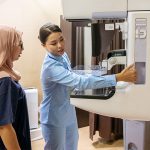CAPP Supports Audio-only Doctor Visits During Pandemic
The relaxation of federal rules around telehealth have made it possible for medical groups and health systems to bring vitally needed medical attention to patients during the COVID-19 pandemic. Both physicians and patients have made a giant leap forward to rapidly adopt telemedicine as the safest way to access care today. In CAPP groups and other care settings, telehealth visits leaped from a few dozen a day to thousands in only a couple of months.
However, one telehealth option overlooked in the regulatory exemptions is audio-only (telephone-only) visits with patients who are in Medicare Advantage programs. Addressing this oversight is critically important for two reasons: many seniors don’t have access to video and broadband technology, and the exclusion of telephone-only visits means that physician documentation conducted during these calls may not count towards risk adjustment payment.
The physician executives at CAPP groups, along with the American Medical Group Association and America’s Physician Groups, are bringing this important problem to the attention of the media and to federal Medicare officials.
Dr. Norman Chenven, Austin Regional Clinic founder and vice-chair of CAPP, was interviewed on this topic by several health care media.
Speaking in MedPage Today on the issue of seniors accessing telehealth, he noted: “We’re doing the best we can, as are physicians all over the country, to coach people on how to use their [smartphone], or have their children come in and help them, but that’s not always possible. The other issue is that there are people in rural areas, where there is not always good broadband, and it is technically impossible to make a video stream work.”
Using the telephone may be some seniors’ only option for medical care, other than making the challenging and dangerous trip to the doctor’s office during a pandemic.
Dr. Steven Green, a CAPP Board member and chief medical officer at Sharp Rees-Stealy in San Diego, speaking to Health Payer Intelligence, observed that video and audio visits, for the most part, capture the same information.
“The main value of having a video visit is more for the human connection and seeing their face… I don’t think it contributes very much to what is going on in their clinical care.” For many chronic conditions such as congestive heart failure or diabetes, the video component might not be necessary to deliver high-quality care, he says.
Dr. Green also noted that doing workarounds with adult children to get video access is possible, but some privacy is lost. Giving people tablets is expensive and there is always the challenge of the older patient having the internet access, knowledge, or skill to operate it. And some patients simply prefer audio-only visits.
All these reasons make the case for supporting audio-only options for physician visits, especially for seniors.
The other complication with excluding audio-only visits is financial, as Dr. Chenven explained in another article in FierceHealthcare.
“This is still a major problem for physicians who are doing audio-only visits with patients in Medicare Advantage risk plans. They will be penalized because this information will not be considered in setting payment for these patients.”
Physicians record information about a Medicare Advantage patient’s diagnosis and condition in a reporting system known as “HHC coding.” This data is used to estimate the total cost of caring for the patient for the coming year. The sicker the patient, the higher the capitation rate paid for their care. If the patient visit is conducted by telephone, the data collected from the visit is not counted toward that payment calculation. Especially for patients with complex health conditions, this policy could result in significant future losses for today’s already beleaguered physician practices.
Encouraging a patient to come to the office to update a diagnosis to get credit for an HCC code is not advisable during this crisis, noted Dr. Green. “This data can be captured during a telephone call, as well as it can during a video visit. A lot of care is being provided this way, so it is fair to increase the reimbursement for the audio-only part of it.”
At the time this blog was published, the discussion on audio-only visits was continuing between physician organizations such as AMGA and APG and CMS Medicare officials. CAPP members will continue to echo their support for resolving this issue soon.





